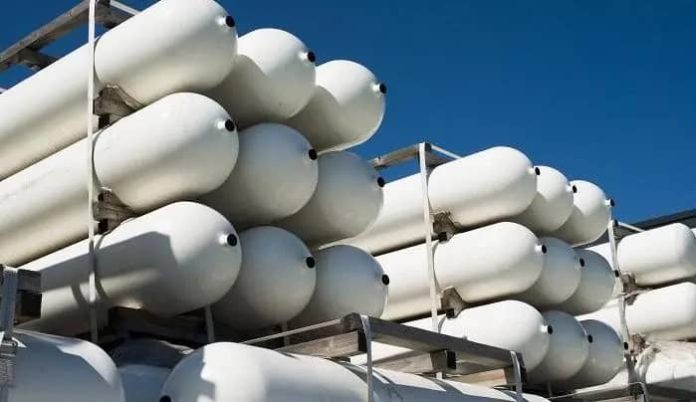BY ROSEMARY NWAEBUNI/PATRICK MGBODO
PRESIDENT Bola Tinubu’s economic policies continue to attract widespread criticism, with the Chemical and Non-Metallic Products Senior Staff Association of Nigeria (CANMPSSAN) expressing strong disapproval of his Compressed Natural Gas (CNG) initiative.
At the 29th Annual National Management and Industrial Seminar held in Asaba, stakeholders in the chemical and non-metallic sector voiced dissatisfaction with the Federal Government’s CNG initiative, which was introduced to cushion the effects of fuel subsidy removal.
Addressing journalists, CANMPSSAN National President Comrade (Engr.) Segun David said that the chemical and non-metallic subsector has been severely impacted by President Tinubu’s monetary policies. He explained that the sector depends heavily on imported materials, requiring substantial foreign exchange, which the current policies have constrained.
Comrade David noted that the association, affiliated with the Trade Union Congress (TUC), has engaged with the Federal Government to address issues like multiple taxation, reduce fuel costs, and implement other practical measures to ease the hardships faced by Nigerians.
“We have been engaging with the Federal Government, but, honestly, it falls short compared to what workers are enduring. The government’s efforts are minimal and do not match the challenges workers face,” David said. “Most of this administration’s economic policies have not only failed but have failed spectacularly.”
Speaking on the CNG initiative, he added, “Most vehicles that should use this gas aren’t readily prepared for it, meaning car owners must pay at least N500,000 for conversion. This is a new terrain for many Nigerians, and issues with CNG conversion have led to vehicle fires.
‘’Our climate conditions differ significantly from regions where CNG is widely used, as they have cooler temperatures. Here, high temperatures increase the risk of vehicles catching fire. The CNG initiative will likely fail because it doesn’t account for local conditions.”
At the seminar’s opening ceremony, themed “In-depth Analysis of Interwoven Parameters of Workers’ Welfare, Productivity Growth, and Government Policies in the Chemical Sector,” Minister of Labour and Employment Mohammed Dingyadi, represented by the Registrar of Trade Unions Mr. Amos Falonipe, appealed for industrial harmony among workers.
Adding to the discourse, Secretary of the Chemical and Non-Metallic Products Employers Federation (CANMPEF), Comrade Femi Oke, acknowledged the challenges manufacturing companies face under current economic policies, which have reduced Nigerians’ purchasing power. However, he expressed optimism that “things will get better.”
The three-day seminar included lectures covering topics such as an in-depth analysis of workers’ welfare, productivity growth, and government policies in the chemical sector; the role of employer-employee collaboration in advancing business interests; and human capital management as a key to organizational success. Other discussions included the Minimum Wage versus Living Wage debate, and strategies for building profitable businesses before and after retirement.


